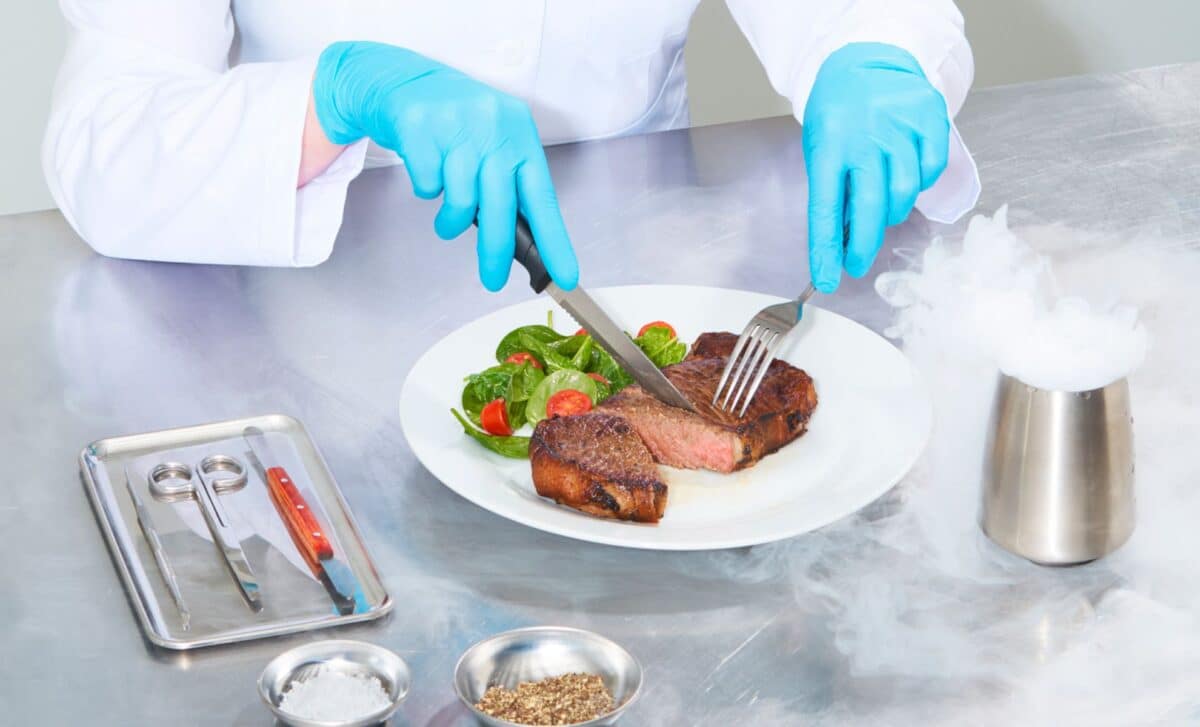Lab-grown meat, dairy, and sugar could be available for purchase in the UK within two years, as regulators seek to streamline the approval process.
The Food Standards Agency (FSA) is working with scientists and food firms to accelerate the pathway for these high-tech foods, aiming to keep pace with countries like the United States, Israel, and Singapore, where such products have already been approved.
UK Seeks to Fast-Track Regulatory Approval
The UK has been at the forefront of lab-grown food innovation, with companies pioneering new ways to produce sustainable alternatives to traditional animal products.
However, according to the FSA, the country’s lengthy approval process has hindered the commercialisation of these products, leaving domestic firms trailing behind global competitors.
To address this, the FSA has announced plans to restructure regulations, aiming to complete full safety assessments for at least two lab-grown products within the next two years. According to Prof Robin May, the agency’s chief scientist, the priority remains ensuring consumer safety while making the process more efficient.
“We are working very closely with the companies involved and academic groups to work together to design a regulatory structure that is good for them, but at all costs ensures the safety of these products remains as high as it possibly can,” he told BBC News.
While the move is seen as a boost for innovation, it has also sparked concerns. Critics argue that involving food companies in the regulatory process raises questions of impartiality.
According to Pat Thomas, director of the campaign group Beyond GM, the firms assisting in shaping new regulations are those that will directly benefit from them.
“The companies involved in helping the FSA to draw up these regulations are the ones most likely to benefit from deregulation and if this were any other type of food product, we would be outraged by it,” she said.
Lab-Grown Foods Promise Sustainability but Face Scepticism
Lab-grown foods are produced by cultivating animal or plant cells in bioreactors, often with the help of gene editing technologies. Proponents argue that they could reduce carbon emissions, lower land and water use, and provide a healthier alternative to conventional animal products.
The UK government sees this sector as a potential driver of economic growth, with companies like Ivy Farm Technologies and MadeSweetly at the forefront of development. Ivy Farm, based in Oxford, has already developed Wagyu and Aberdeen Angus steaks using cell cultivation.
Meanwhile, MadeSweetly, led by Dr Alicia Graham at Imperial College London, has created a sugar alternative by introducing a gene from berries into yeast, resulting in a product that mimics sugar’s sweetness but with potential health benefits.
Despite the excitement, some experts remain cautious. Critics highlight the energy-intensive nature of lab-grown food production, questioning its actual environmental impact.
Additionally, there are concerns about whether these foods, classified as ultra-processed, align with public health recommendations. “We are in an era where we are trying to get people to eat fewer ultra-processed foods because they have health implications,” said Thomas.
The FSA’s plan to accelerate approval while maintaining strict safety standards represents a significant shift in UK food policy. Whether lab-grown foods gain consumer acceptance will depend on their environmental credentials, health impacts, and affordability in the years ahead.









